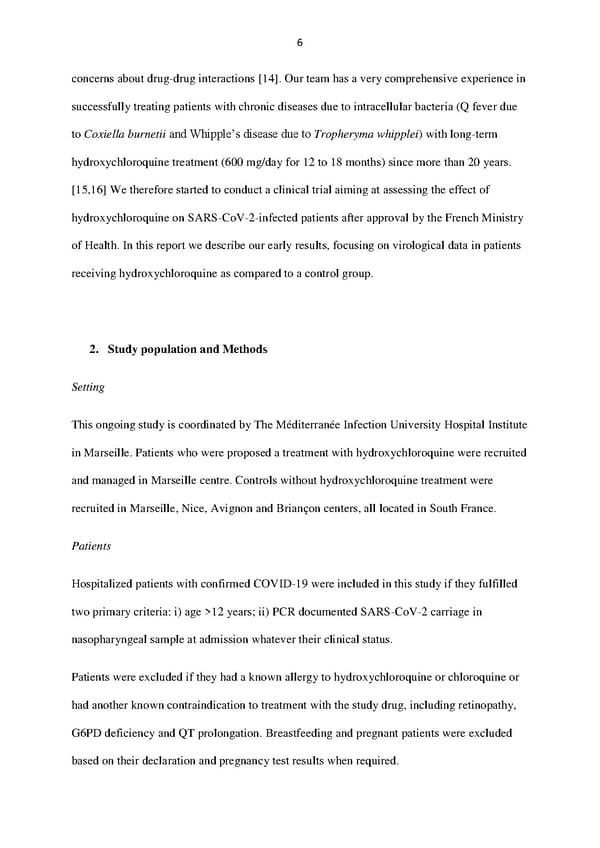6 concerns about drug-drug interactions [14]. Our team has a very comprehensive experience in successfully treating patients with chronic diseases due to intracellular bacteria (Q fever due to Coxiella burnetii and Whipple’s disease due to Tropheryma whipplei) with long-term hydroxychloroquine treatment (600 mg/day for 12 to 18 months) since more than 20 years. [15,16] We therefore started to conduct a clinical trial aiming at assessing the effect of hydroxychloroquine on SARS-CoV-2-infected patients after approval by the French Ministry of Health. In this report we describe our early results, focusing on virological data in patients receiving hydroxychloroquine as compared to a control group. 2. Study population and Methods Setting This ongoing study is coordinated by The Méditerranée Infection University Hospital Institute in Marseille. Patients who were proposed a treatment with hydroxychloroquine were recruited and managed in Marseille centre. Controls without hydroxychloroquine treatment were recruited in Marseille, Nice, Avignon and Briançon centers, all located in South France. Patients Hospitalized patients with confirmed COVID-19 were included in this study if they fulfilled two primary criteria: i) age >12 years; ii) PCR documented SARS-CoV-2 carriage in nasopharyngeal sample at admission whatever their clinical status. Patients were excluded if they had a known allergy to hydroxychloroquine or chloroquine or had another known contraindication to treatment with the study drug, including retinopathy, G6PD deficiency and QT prolongation. Breastfeeding and pregnant patients were excluded based on their declaration and pregnancy test results when required.
 Hydroxychloroquine and Azithromycin as a Treatment of COVID-19 Page 5 Page 7
Hydroxychloroquine and Azithromycin as a Treatment of COVID-19 Page 5 Page 7